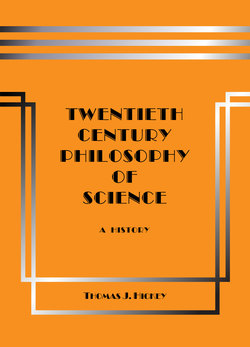Читать книгу Twentieth-Century Philosophy of Science: A History (Third Edition) - Thomas J. Hickey - Страница 52
На сайте Литреса книга снята с продажи.
3.21 Semantical Rules
ОглавлениеA semantical rule is a universally quantified affirmation believed to be true and viewed in logical supposition in the metalinguistic perspective, such that the meaning of the predicate term displays some of the component part or parts of the meaning of the subject term.
The above discussion of analyticity leads immediately to the idea of “semantical rules”, a phrase also found in the writings of such philosophers as Rudolf Carnap and Alonzo Church but with different meanings. In the contemporary pragmatist philosophy semantical rules are statements in the metalinguistic perspective, because they are about language. And their constituent terms are viewed in logical supposition, because as semantical rules the statements are about meanings as opposed to nonlinguistic reality. Semantical rules are enabled by the complex nature of the semantics of descriptive terms. But due to psychological habit that enables prereflective linguistic fluency, meanings are experienced wholistically, and reflective semantical analysis is needed to appreciate their componential nature.
